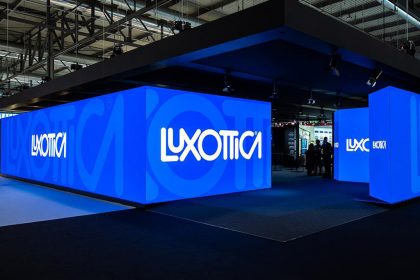Social media giant, Facebook, has partnered with Luxottica, the parent company of Ray-Ban, to create smart Augmented Reality (AR) glasses.
Social media giant, Facebook, has partnered with Luxottica, the parent company of Ray-Ban, to create smart Augmented Reality (AR) glasses.
Luxottica previously partnered with Google in 2014 to design, build, and sell the Google Glass wearable device.
The project, codenamed ‘Stella,’ is being developed to test the consumer market about a Facebook visual product and set to feature high-end functions. Stella is slated for launch sometime between 2023 and 2025 and will have a camera on the frame of the glasses which can be used to record and upload moments in the user’s day.
The Stella AR glasses will be similar to the Snap Spectacles, which only functions to take short videos and upload to the Snapchat application, except that it will feature the Ray-Ban design look. The AR glasses are said to be developed with an intelligent AI voice assistant feature like Apple’s Siri and will also feature voice activation commands.
Aesthetics are reported to be the main point of concern in the development process as Facebook aims to reduce the size of the glasses into a size and shape that the consumers will find appealing. Hundreds of employees were moved from Facebook Reality Labs to an AR product team in an effort by Mark Zuckerberg to prioritize the project.
Facebook declined to comment on the development while Luxottica could not be reached at the time of publication.
Facebook Working on Another AR Project
Facebook is also reported to be working on another AR project which is totally different from the ‘Stella’ AR glasses. The project, codenamed ‘Orion,’ will be able to function without the need for a smartphone. Orion is being developed with the vision to replace smartphones with its high-end product functions.
Sources from CNBC mention features like the functions to make phone calls, live streaming of the wearer’s point-of-view on social media and information display on the glasses. The product also features an AI voice assistant and a ring device, codenamed Agios, which would allow users to input information through the motion sensors on it.
Facebook would have to overcome issues like technical challenges and problems with its public image, based on its approaches on privacy and data sharing when developing the camera-equipped glasses.
AR technology is essential in taking the next step to the future, with benefits like having access to real-time information as well as other features. With more AR devices being developed and released, it’s safe to say we are a step further to the technology of the future.
next